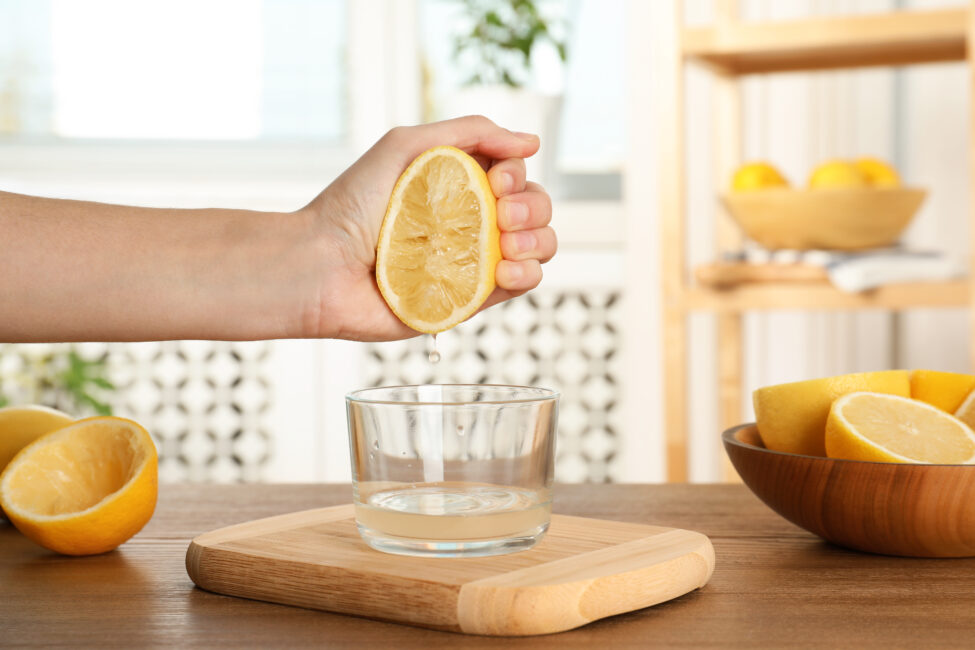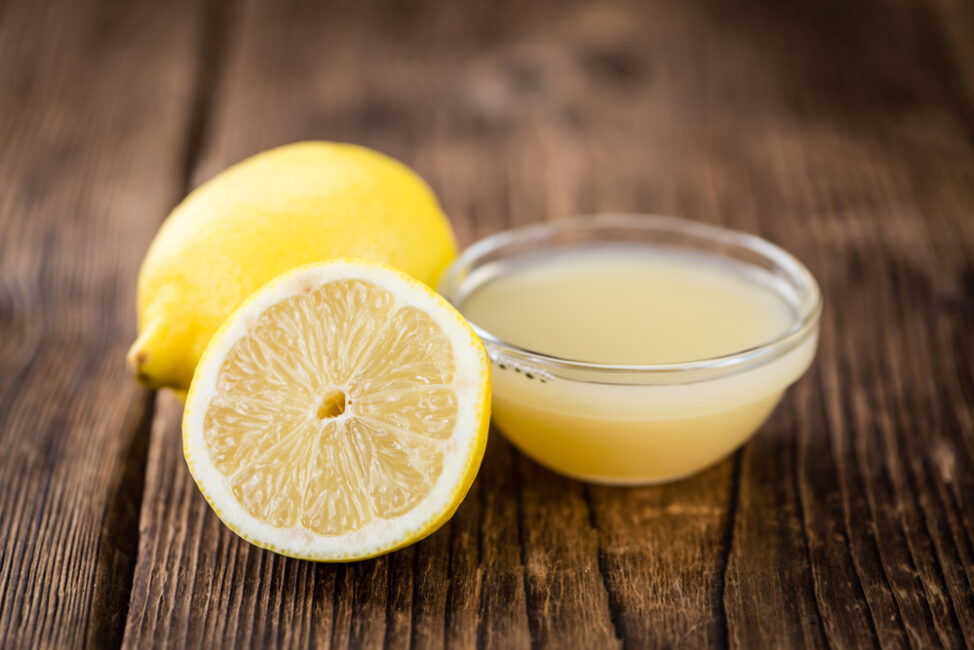I recently had the sour disappointment of reaching for a bottle of lemon juice in my fridge, only to find that it was looking a little suspect.
Lemon juice seems simple enough to keep on hand, but its shelf life can be somewhat of a mystery. Whether you’re making a batch of lemonade or throwing a citrusy kick into your favorite recipes, knowing how long lemon juice lasts can mean the difference between tasty and terrible. So, let’s talk about the best way to store this liquid gold.

The Lemony Lowdown
So, how long does lemon juice last in the fridge? If you’re squeezing for a quick answer, here it is: Lemon juice has a range of a couple days to over a year, depending on type and storage conditions. Freshly squeezed will last you 3 to 4 days in the fridge, while the store-bought kind boasts a MUCH longer shelf life thanks to preservatives. The longevity of your lemon juice hinges on several factors. Stick with me while we dive into the juicy details of keeping your lemon juice fresh.

Factors that Affect the Shelf Life of Lemon Juice
The shelf life of lemon juice is influenced by a cocktail of factors:
- Type of Lemon Juice: There’s a noticeable difference between the homemade squeezed kind and the store-bought bottle. Freshly squeezed lemon juice, with its lack of additives, has a much shorter fridge life compared to its commercially-produced counterpart, which often contains preservatives that extend its shelf life. And even then, the shelf life of the bottled kind will depend on just how much preservatives have been added. Here’s how that breaks down:
- Freshly squeezed: 3 to 4 days in the fridge; 3 to 4 months in the freezer
- Bottled Store-bought (unopened): about a year in the pantry (once opened, move to fridge)
- Bottled Store-bought (opened): 6 months in the fridge; indefinitely in the freezer
- Lemonade: 1 week in the fridge; 2 to 3 months in the freezer
- Ingredients: Citric acid in itself is a preservative. So whether it’s pure lemon juice or lemon juice with added ingredients (like sugar or water) can also affect longevity. When it comes to lasting power, the simpler, the better.
- Storage: How you store your juice makes a difference. Fresh lemon juice should be stored in an airtight container and kept in the fridge. Store-bought juices last longest when kept in their original, unopened bottle and away from direct sunlight and heat sources, until it’s time to use them. Then the should be sealed tightly and stored in the fridge.
- Room Temperature Conditions: Fresh lemon juice left out on the kitchen countertop will only last about a day. Bottled will last about a year unopened. Lemonade should always be stored in the fridge.
- Additives: Additives can make or break lemon juice. While the preservatives in store-bought lemon juice can extend its shelf life, the sugar and water in lemonade cut that shelf life WAY down. While it has the lowest shelf life of all lemon juice, freshly squeezed offers the best quality and health benefits, like vitamin C, without any of the extra stuff.
- Use-by Dates: When it doubt, ALWAYS check the use-by date on lemon juice. The dates on store-bought lemon juice are more of a ballpark for freshness, and you can usually tack on 2 to 3 more months to the date before it actually goes bad, especially if it’s remained unopened. Lemonade’s use-by dates should be taken a little more literally.

Signs That Lemon Juice Has Gone Bad
When life gives you lemons, make lemonade! But what if your lemon juice has crossed over to the dark side? Here are some signs that it’s lost its zest:
- Smell: Fresh lemon juice will have a clean, citrusy scent. If it starts to smell musty like an old lemon left in the sun, it’s time to say goodbye.
- Appearance: Good lemon juice is clear and bright yellow. If you notice any murkiness or signs of mold, your lemon juice has probably gone bad.
- Taste: If you’re brave enough to try it, and the juice passes the smell and appearance test, a quick taste can confirm. Off flavors are a dead giveaway.
The main health risk with bad lemon juice is food poisoning. It’s just not worth the risk. Like I always say: “When in doubt, throw it out.”
Tips on How to Maximize Shelf Life of Lemon Juice
Want to make sure your lemon juice stays fresh for as long as possible? Here are some tips:
- Storage: Store your lemon juice in an airtight container to protect it from the elements. Glass jars are a good option for keeping lemon juice fresh and preventing it from absorbing any unwanted flavors.
- Chill Out: The fridge is the best place for lemon juice to chill, literally. Keep it cold, as this will slow down the oxidation process and preserve its taste and freshness.
- Freeze: For long-term storage, freeze lemon juice in ice cube trays. Once frozen, transfer those cubes to a freezer bag. This will not only extend its shelf life but it’s also a super convenient way to measure out just the right amount you need.
- Label It: Whether you’re storing it in the fridge or freezer, label your lemon juice with the date it was squeezed (or opened, if store-bought). This will help you to keep track of its freshness.

Loving Your Leftover Lemon Juice:
Got some leftover lemon juice sitting pretty in your fridge? Don’t let it go to waste! Here are a few creative ways to use it up:
- Lemon Ice Cubes: Freeze lemon juice in ice cube trays, then use them to zest up your water or iced tea.
- Dips & Salad Dressings: Whip up a homemade salad dressing or dip with leftover lemon juice. Here are some condiments you can make at home using lemon juice: Healthy Hummus, Creamy Avocado Dressing, Tarragon Yogurt Dressing.
- Lemon Curd: Turning your lemon juice into lemon curd is a great way to extend the life of your lemons and whip up a taste dessert!
FAQs
Can I freeze whole lemons?
Absolutely! Just remember to place them in a freezer bag first and release as much air as possible before sealing. When you’re ready to use them, let them thaw at room temperature or microwave them for a few seconds for easier juicing.
What’s the best way to store cut lemons?
Cut lemons should be stored in a sealed container or wrapped tightly in plastic wrap to minimize their exposure to air and prevent premature spoilage. Place them in the crisper drawer of your fridge. For the best results, use your cut lemons within a couple of days.
Can lemon zest be stored for later use, and how?
Yes! For short-term storage, zest your lemons and keep that zest in a small, sealed container or plastic bag in the fridge. To store it for longer, freeze the zest in a zip-top bag or an airtight container.
How can I extend the shelf life of lemon juice without compromising its quality?
Store your lemon juice in a glass jar or plastic container and keep it in the fridge. If you’ve squeezed more juice than you need, freeze it in ice cube trays, then transfer the lemon juice cubes into a freezer bag.
Pucker Up and Enjoy!
From storage tips to creative uses for leftovers, we hope we’ve covered everything on the citrus spectrum to help you get the most life out of your lemon juice!
Got your own lemony tips to share? Or perhaps a favorite lemon recipe? I’d love to hear about it! Leave a comment below with your citrusy secrets or how you keep your lemon juice fresh!
Want More Related Tips?
- How to Get More Juice from Lemons
- How Long Does Shredded Chicken Last in the Fridge?
- How Long Do Green Beans Last in the Fridge and Freezer?
- How Long Does Tea Last in the Fridge Before it Goes Bad?





